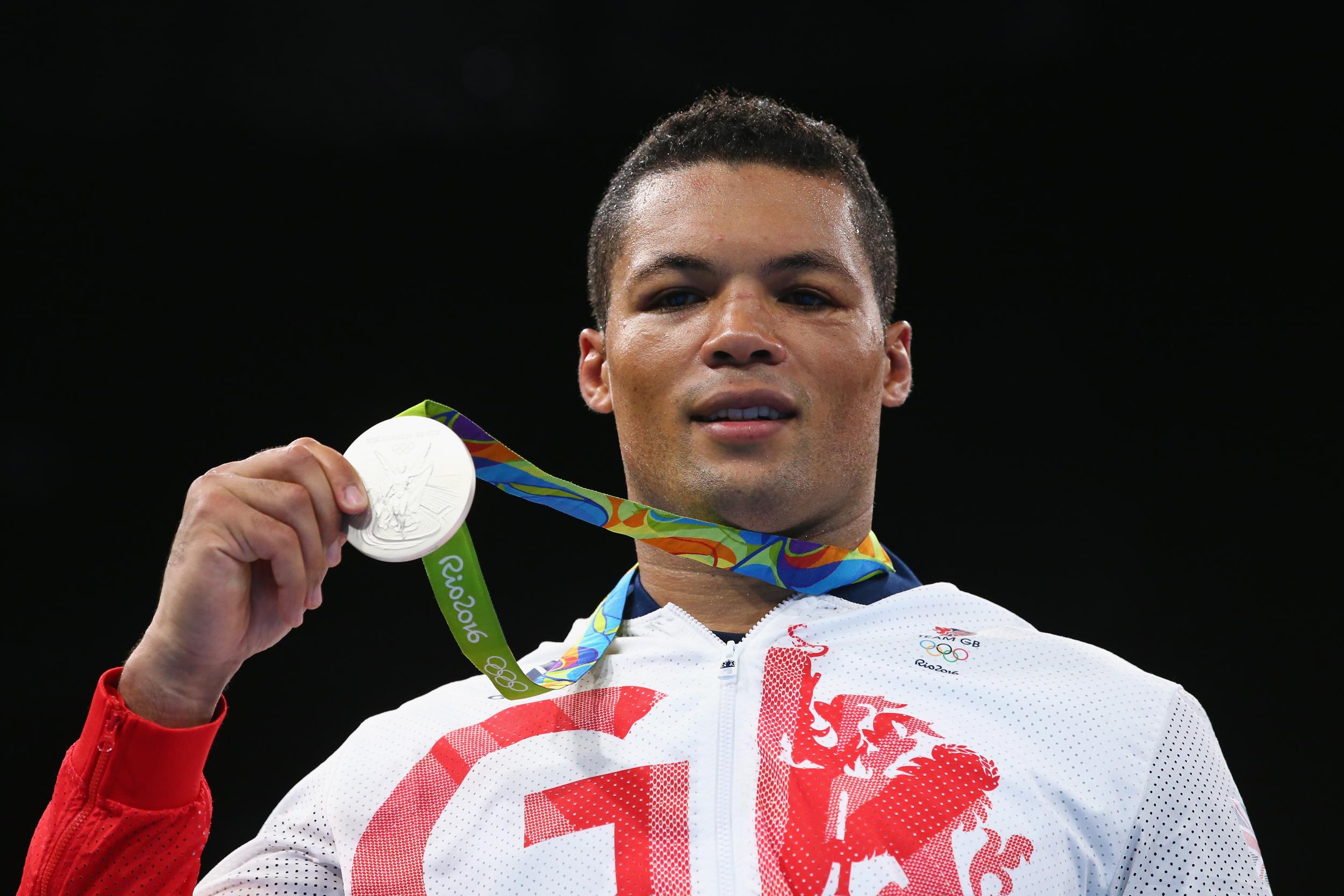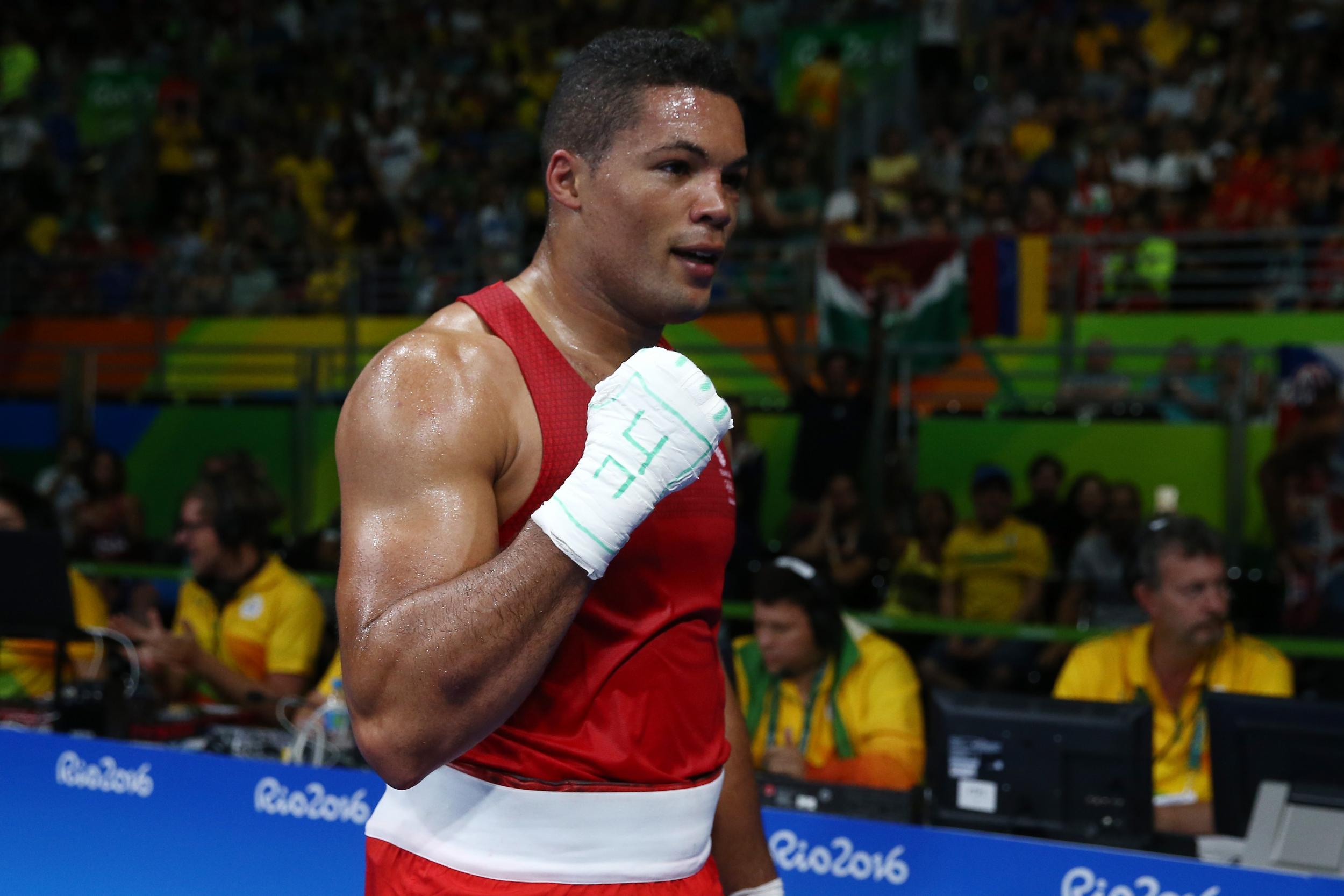Rio 2016: Joe Joyce claims Team GB's 67th and final medal with silver in super heavyweight boxing final
Joyce closed off Team GB's Olympic Games with silver to clinch Britain's third boxing medal at Rio

Your support helps us to tell the story
From reproductive rights to climate change to Big Tech, The Independent is on the ground when the story is developing. Whether it's investigating the financials of Elon Musk's pro-Trump PAC or producing our latest documentary, 'The A Word', which shines a light on the American women fighting for reproductive rights, we know how important it is to parse out the facts from the messaging.
At such a critical moment in US history, we need reporters on the ground. Your donation allows us to keep sending journalists to speak to both sides of the story.
The Independent is trusted by Americans across the entire political spectrum. And unlike many other quality news outlets, we choose not to lock Americans out of our reporting and analysis with paywalls. We believe quality journalism should be available to everyone, paid for by those who can afford it.
Your support makes all the difference.Just as beauty resides in the eyes of the beholder, the appeal of some victories in boxing is not always clear.
Joe Joyce is partial, of course, but he felt he had done enough to make Britain’s 67th medal in Rio a 28th gold instead of the super heavyweight silver he took from the final bout at these Olympics.
One judge saw fit to award his French opponent, Tony Yoka, every round, which given that the decision was split, was either a remarkable show confidence, or worse. Even heads in Paris shook at that verdict.
Asked if this was another of those unfathomable decisions that have blighted this competition, Joyce offered a diplomatic “possibly”. You had to be looking him in the eye to divine the truth of that sentiment.
Anthony Joshua, the golden Briton of London whom Joyce sought to emulate here, was more forthright. “I’m disappointed for Joe. You can see it in his face. I feel his pain,” Joshua said. “He didn’t do anything wrong. The guy (Joyce) threw so many punches, he worked like a horse. He did all he could. So I don't know where he went wrong.”
Joyce was the aggressor throughout, starting the quicker and in terms of volume was the busier man. That said, Yoka answered back at the end of the first, his punches longer, and more emphatic.
The Frenchman had the better of the second, much busier from the outset and accurate with it. This was obviously close, just the kind of bout you would not want to place in the hands of judges with a questionable recent past.
Azerbaijan’s converted Cuban Collazo Sotomayor had to be carried from the ring such was his dismay at failing to get the nod over his outclassed but game Uzbek opponent in the final of the 64 kilo class in the penultimate bout.
It was a striking warning of the capricious twist boxing can take, punching the lights out of your foe paradoxically not persuasive in this environment. Joyce did not have quite the same claim to injustice but there was a case to be made.

The third and final round was one of unrelenting pressure from Joyce, a rolling maul of a boxer. Yoka countered with an Ali shuffle as if to convey the idea of superiority, but the dance did not detonate a punch.
As the pair went for broke in the final minute the crowd urged them on by stamping their feet, which, if you didn’t know better, would have had you running for the exits fearing a freight train was about to rip through the arena.
That’s how it must have felt for Joyce when the verdict was handed down, the referee raising the Frenchman’s hand to a chorus of boos.
“I don’t know what they were scoring. I thought I was penetrating his guard,” Joyce said. “The dominant work was done by me, to the head and the body. I thought I was landing loads of shots long range and in close.”
Again Joyce was asked if he thought the failure of the judges to acknowledge apparent dominance pointed to a suspect system. “Make your own decision,” he said. “I thought I won the rounds. I have to watch it back but I think I did enough to win gold. I took it to him and thought I beat him.”
Given the wider disappointments suffered by Team GB’s boxers in Rio, losing six of the 12-man squad in the first five days, Joyce’s contribution is a silver lining of sorts. And for a big fella who did not take up the sweet science until the age of 22, he has had a tidy run.
But you always want more, and since he is contemplating a future in the paid ranks gold would have been tidier still. “I thought I would be in a different mood coming in here (speaking to the press) but I am walking away with a silver medal so just disappointing. People remember a gold medalist a lot more.”
Join our commenting forum
Join thought-provoking conversations, follow other Independent readers and see their replies
Comments